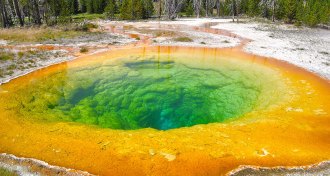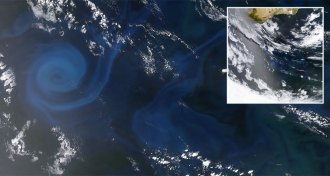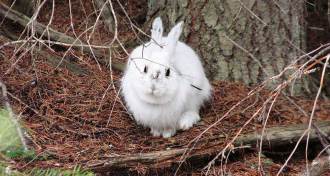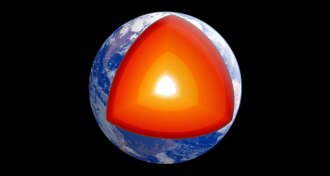Earth
Sign up for our newsletter
We summarize the week's scientific breakthroughs every Thursday.
-
 Environment
EnvironmentUrban heat islands exist even in the Arctic
Arctic cities are a source of warming in the far north. Unlike midlatitude heat islands, poorly insulated buildings — not the sun — are a primary source.
By Janet Raloff -
 Earth
EarthOcean’s plastics offer a floating fortress to a mess of microbes
Microbes take up residence on ocean plastics, potentially causing changes in ocean environments.
-
 Agriculture
AgriculturePlants trick bacteria into attacking too soon
Scientists have discovered that a plant compound interferes with bacterial communication.
-
 Science & Society
Science & Society‘GMOs’ isn’t a four-letter word, but it is hard to define
The definition of what constitutes a genetically modified organism is a challenge to those tasked with developing standards for labeling foods that contain GMOs.
-
 Climate
ClimateForest management not so hot at fighting warming
Forest management practices in Europe have slightly worsened climate change, new research shows.
-
 Earth
EarthAncient tectonic plate blocks magma plume at Yellowstone, simulation shows
A rising plume of hot rock from Earth’s mantle may not be responsible for the Yellowstone supervolcano, new research suggests.
-
 Climate
ClimatePhytoplankton rapidly disappearing from the Indian Ocean
Phytoplankton populations in the Indian Ocean fell 30 percent over the last 16 years largely due to global warming, new research suggests.
-
 Genetics
GeneticsGMOs haven’t delivered on their promises — or risks
Genetically modified foods have been studied extensively and are abundant on supermarket shelves, but they haven’t managed to end world hunger yet.
-
 Animals
AnimalsClimate change may be deadly for snowshoe hares
The mismatch between coat color and the landscape can be deadly for a snowshoe hare.
-
 Environment
EnvironmentConverted milk proteins clean pollution, strike gold
A new membrane uses sticky amyloid proteins to trap contaminants in water.
-
 Earth
EarthEarth’s inner secrets divulged in ‘Into the Heart of Our World’
A scientific journey to the center of the Earth includes just as much excitement and mystery as Jules Verne’s classic novel, a new book demonstrates.
-
 Agriculture
AgricultureJust adding pollinators could boost small-farm yields
Adding pollinators could start closing gap in yields for small farms.
By Susan Milius